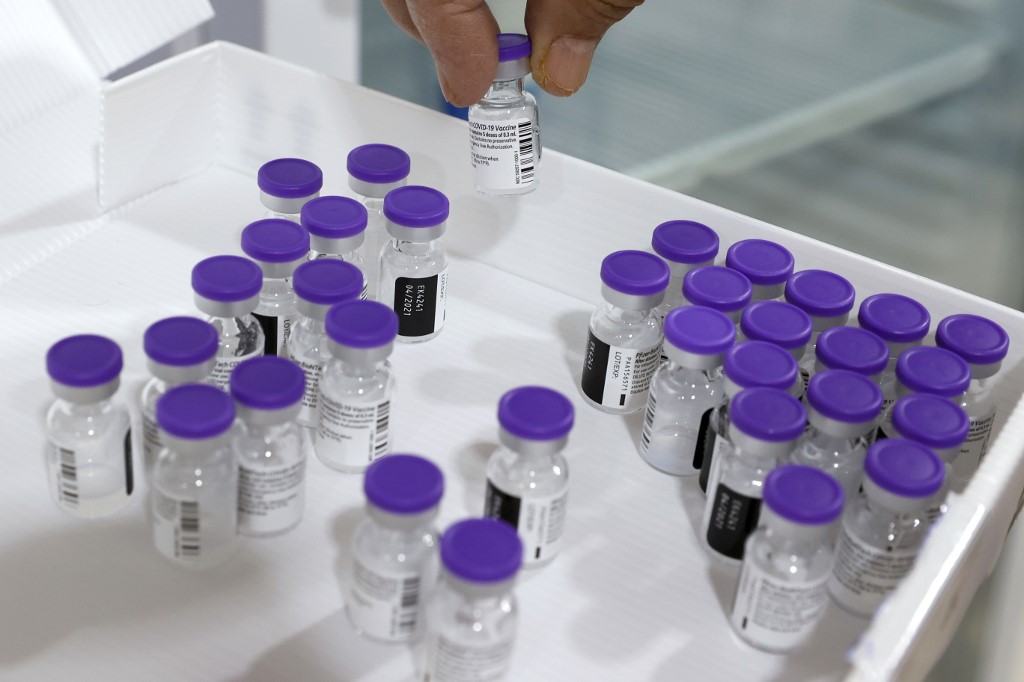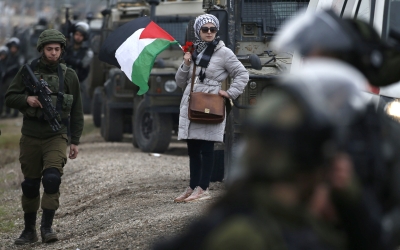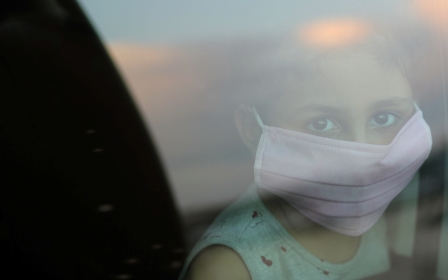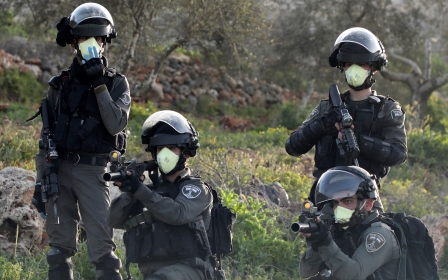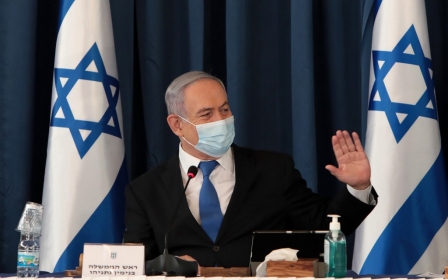For Palestinians, Israel's record vaccine rollout exposes Covid-19 apartheid
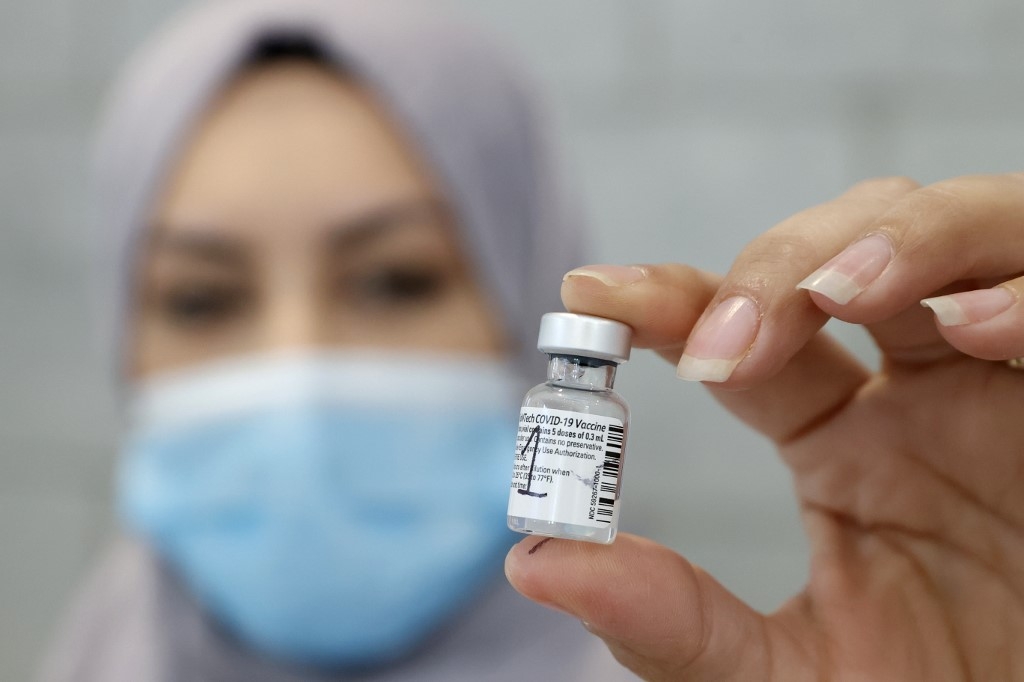
Global media have marvelled at Israel’s rollout of the Covid-19 vaccine, with close to one million people vaccinated in the past two weeks. It plans to double that number by the end of January. This is indeed a success, but it should not obscure other troubling aspects of both the vaccination campaign and the massive public health crisis that preceded it.
Israel has been severely impacted by the pandemic, ranked 32nd globally in the number of cases of the disease and falling in the top 60 when it comes to the mortality rate. Israel’s public health approach was largely dysfunctional, with lockdowns imposed, suspended and then reimposed.
The ultra-Orthodox community strongly resisted measures decreed by the government and had an extraordinarily high rate of disease transmission. Testing in Israel's Palestinian citizens' communities was haphazard. The Palestinian Authority (PA) had far less resources to address the crisis, and people were mostly left to their own devices.
One extreme to the next
Israeli Prime Minister Benjamin Netanyahu has seemed to ricochet from one extreme to the next in his approach to combatting the pandemic. Several senior public health officials and one minister have resigned. Small businesses rebelled against restrictions that harmed their livelihoods, and thousands of people took to the streets to protest both the government’s approach and the prime minister’s looming corruption trial.
New MEE newsletter: Jerusalem Dispatch
Sign up to get the latest insights and analysis on Israel-Palestine, alongside Turkey Unpacked and other MEE newsletters
In fighting Covid-19, the government fell back on the usual security and surveillance protocols it favours when battling a hostile force. It recruited the Shin Bet, which had been using a mass surveillance tool monitoring Israeli electronic devices and communications, in order to track coronavirus cases. Privacy advocates protested the infringement on citizens’ rights.
Though Israel is the occupying power in the West Bank and Gaza and, as such, has responsibility for the Palestinian population, it has washed its hands of it
Meanwhile, after learning of the successful development of a vaccine, Netanyahu secured millions of doses, but at a cost. Israel is paying $62 a dose. AstraZeneca’s vaccine costs as little as $2 a dose for the EU countries that purchased it, while Moderna’s version is $18. But Netanyahu paid the higher price, because he knew he faced an imminent election (now scheduled for March), increasing unpopularity and a threat to his continued rule. He figured that a Covid-19 success, even purchased at such a high price, would be a triumph to present to a dubious electorate.
Delayed shipments
In Palestine, there is no vaccine to be had at any price. The PA does not have the funds to purchase it, and is waiting for shipments from the World Health Organisation, which have been delayed. Though Israel is the occupying power in the West Bank and Gaza and, as such, has responsibility for the Palestinian population, it has washed its hands of it.
Pro-Israel pundits have falsely argued that the Oslo Accords specified that Palestinians would be responsible for their own health and welfare. Yet, this ignores the fact that Israel never honoured its commitments under Oslo, and never recognised a Palestinian state.
No state, no sovereignty; hence, the PA is incapable of offering the protections a fully functioning government would. Not to mention, it is essentially bankrupt and relies on international humanitarian relief to get by. How does anyone expect it could pay $20 a dose, let alone $62?
The other main contention is that the PA has not asked for Israeli assistance - but Netanyahu certainly has Palestinian President Mahmoud Abbas’ number, and could offer help if he wished. Not only hasn’t he offered, Palestinians are the last thing on his mind.
Despite the vaunted success of Israel’s vaccine rollout, as usual in the country, benefits are delivered differently to different ethnic communities. Nearly 30 percent of those getting the vaccine within Israel proper are Jewish, while only 15 percent are Palestinian. Healthcare in general is inferior in Palestinian communities, and Palestinians place less trust in official government programmes, which have historically been of little or no benefit to them.
Of 300,000 vaccine doses administered by Israel’s largest health service organisation, Clalit, only five percent were set aside for Palestinian communities, and just 10 of its 145 vaccination sites are located in Palestinian areas. The government has also refused to inoculate Palestinian security prisoners in Israeli jails. They get no protection at all.
Deadly consequences
Keep in mind that large numbers of Palestinians work in the Israeli healthcare system as doctors, nurses and pharmacists. Nearly 20 percent of Israeli doctors are Palestinian, as are 25 percent of nurses and nearly 50 percent of pharmacists. Palestinian doctors work alongside Jewish doctors to save the lives of Covid-19 patients, both Jewish and Palestinian, at Israeli hospitals.
In light of the lower rates of inoculation in Palestinian areas, a country with a good public health system would organise a mass education and media campaign to persuade citizens to take extra steps to have themselves inoculated. No such outreach is happening in Israel, because the government simply doesn’t think that way.
It leaves Palestinians largely to fend for themselves - an example of what former US politician Daniel Patrick Moynihan infamously called “benign neglect”. But in Israel, the neglect isn’t benign at all; it is enmeshed in the fabric of society and has deadly consequences.
This situation highlights the racism at the heart of Israeli society, showing how Israel is a nation based on apartheid, with superior rights, privileges and benefits offered to Jews and inferior ones to Palestinians.
Global media outlets trumpeting Israel’s success in administering the vaccine should remember that such success comes at an enormous cost to Israel’s non-Jews, who are left behind.
The views expressed in this article belong to the author and do not necessarily reflect the editorial policy of Middle East Eye.
This article is available in French on Middle East Eye French edition.
Middle East Eye delivers independent and unrivalled coverage and analysis of the Middle East, North Africa and beyond. To learn more about republishing this content and the associated fees, please fill out this form. More about MEE can be found here.



